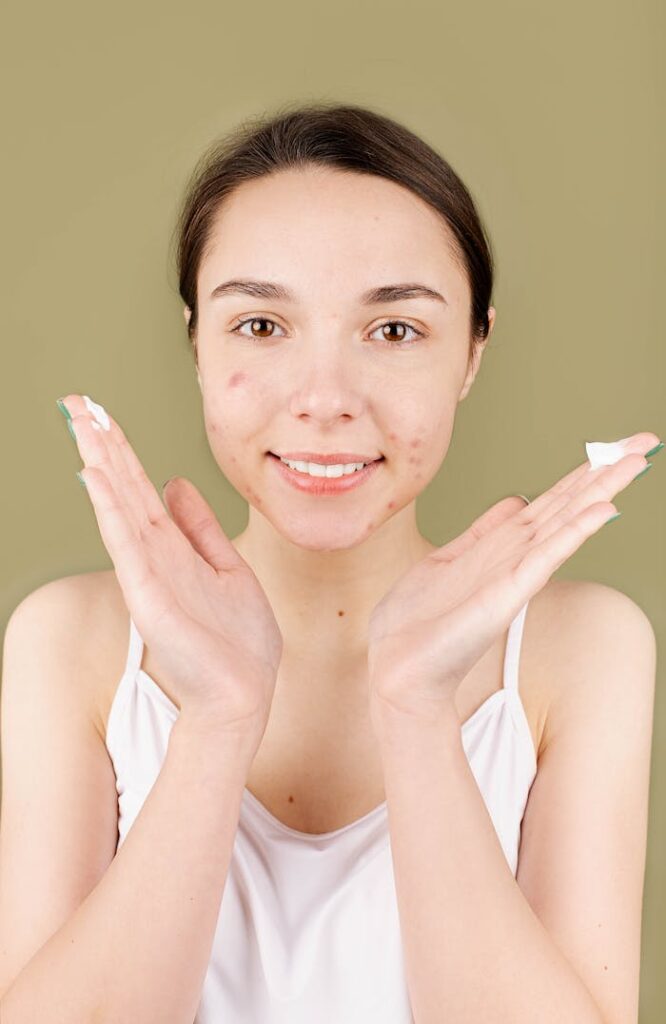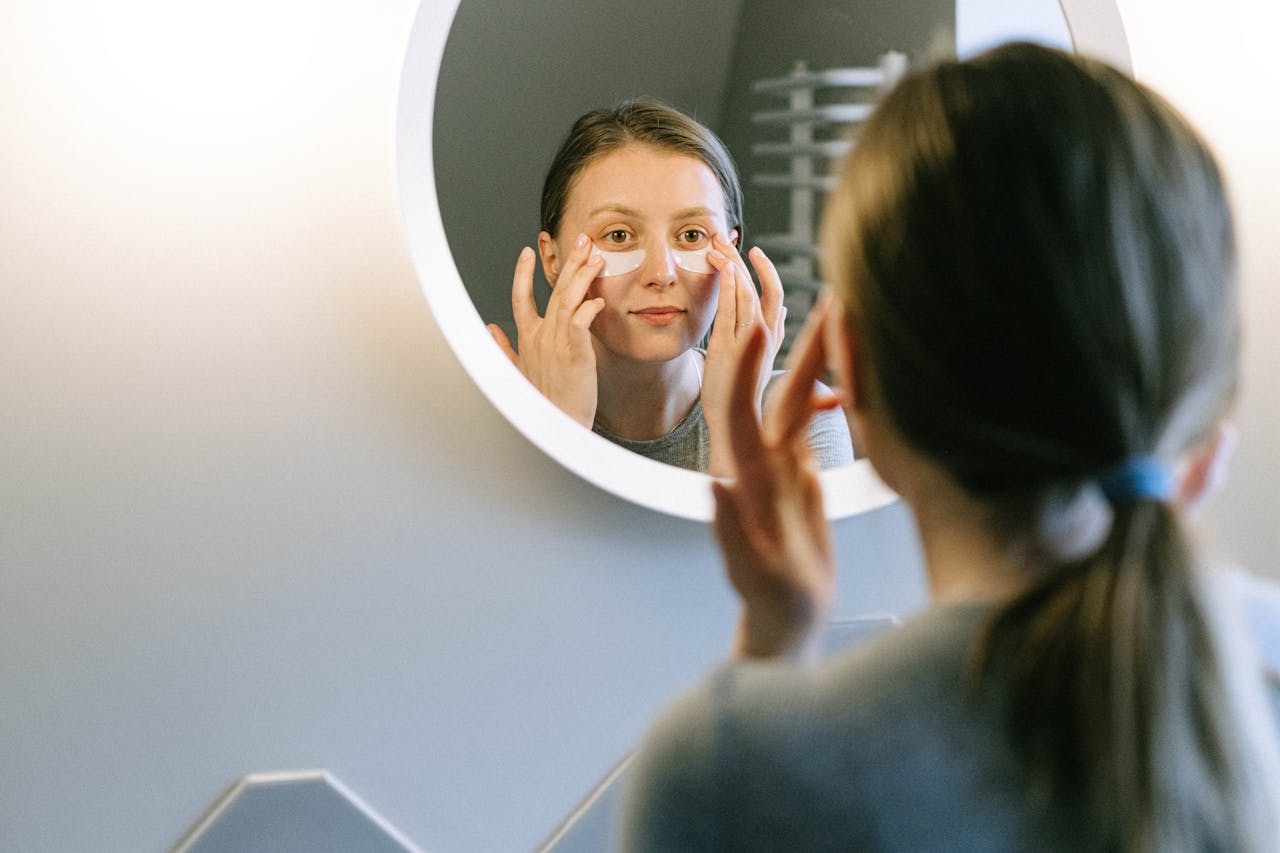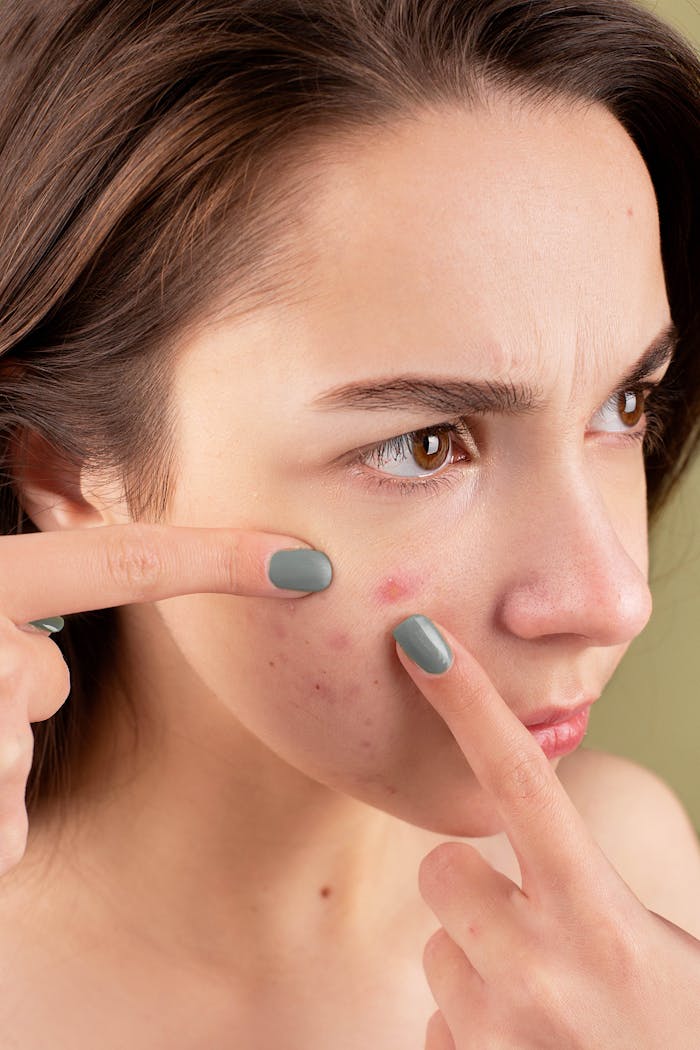Why Am I Still Breaking Out with a Good Skincare Routine?

So frustrating—right?—when you have acne, yet you’re really hardworking with good skincare practices. And if you’ve ever been showing up right on time at some fancy event, saying, “Why am I still breaking out with a Good Skincare Routine ?”, well, you are not alone. This ultimate guide dials back to common reasons breakouts happen and dishes out actionable solutions.
Problem: You still break out despite good skincare routine
You spend money on good skincare products and make your way dutifully through cleansers, toners, moisturizers, even treatments. Still, those little annoying pimples and blemishes keep cropping up. It’s an everyday problem that baffles and disheartens most people.
The American Academy of Dermatology reports that almost 50 million Americans suffer from acne annually. Of those, there is a huge number having a skincare routine, yet still breakout. This is not just helpless; it’s frustrating enough to cause any lady to lose her self-esteem and confidence.
Agitation: The Emotional and Physical Toll of Acne
It becomes very tiring to live with chronic acne. It is not much about how it takes a toll on the way you look, but it’s more on the mental toll it takes on a person, directly affecting his routine life. Acne can cause loss of confidence and shyness, avoiding social gatherings, and sometimes even affects professional life.
What’s more, chronic breakouts can lead to likely skin damage from scarring and hyperpigmentation, which may take months or even years to clear. With all this frustration, the need for a solution increases more than ever.
Get to the Bottom and Fix the Real Causes
All these root causes will definitely help in fighting acne. Following are common reasons with practical solutions to why you might still be breaking out despite following a good skincare routine.
1. You’re using the wrong product classification for your skin type.
Probably one of the worst mistakes that can be made is to use products unsuitable for your skin type. Rich moisturizer might well be the last thing oily skin needs, as it will only block pores and cause outbreaks on the skin. Very harsh products can easily cause a problem with sensitive skin and then cause irritation, which later turns to acne.
First, identify your skin type: oily, dry, combination, or sensitive; then use products formulated toward those needs. Be sure to check for non-comedogenic products that won’t clog pores and ensure each product is compatible with your skin type.
2. Overload your skin with too many products.
While the multistep skincare may be beneficial, there is also the danger of overusing and overwhelming your skin. This manifests in breakouts. Relating more to the mixing of ingredients that go ill with each other, this happens when it goes about mixing ingredients against each other.
Keep a simple and uncomplicated skincare routine. Don’t complicate things—just clean, tone if you’re feeling that way inclined to do so, moisturize, and sun protect during the day. Introduce one product at a time; watch your skin well before introducing another new product.
3. Poor Washing
Good cleansing removes all the dirt, oil, and makeup that have piled on your skin, clogged its pores, and are responsible for acne. Unless he washes his face properly, these residues will go on sticking to his skin and will provide a medium in which the bacteria will multiply and cause acne.
Solution: Wash your face twice a day—once in the morning and once before bed. Use gentle cleanser forgiving enough to actually clean out your pores of all impurities without snatching the natural oils on your face. Double cleansing you can do in case you have makeup or sunscreen.
4. Hormonal Imbalances
Hormones, however, play a major role in the development of acne. Changes in the level of certain hormones during puberty, at menstruation, during pregnancy, or in diseases like polycystic ovaries increase the risk of eruptions.
Solution: If you think you have been having some hormonal imbalance, contact a doctor. He will then diagnose the problem and recommend proper treatment, which may include hormone therapy or some other kind of medication.
5. Nutritional and Lifestyle Factors
The skin in such cases is said to serve as an example of the results of nutritional and other lifestyle factors. Processed foods with a high glycemic index, dairy products, and sugar-enhanced snacks inflame the acne. Stress, no sleeping, and lack of hydration make the skin go weird.
Eat well-balanced diets that have lots of fruit, vegetables, lean proteins, and good fats. Also, drink enough water to keep yourself well-hydrated. Shun away stress with exercises, meditation, spending time with loved ones, through hobbies, or other things that bring happiness. Always have enough rest at night.
6. Touching your face too much
When one touches his/her face, bacteria, dirt, and oil from the hands get into the face and tend to break out.
Solution: Touch your face less and never pop or squeeze the pimples. Keep washing the hands a lot; use clean towels and change pillowcases often to reduce how much bacteria you transfer around.
7. Not Wearing Sunscreen
This can lead to an easy gateway to sun damage, which exacerbates acne and hyperpigmentation. More to the point, some treatments for acne may even aggravate the matter of increasing skin sensitivity to the sun.
Solution: Slather on a broad-spectrum sunscreen with at least SPF 30 daily. Reach for the non-comedogenic ones that won’t clog pores—even on hazy days.
Real-World Success: Case Study
A study in the Journal of the American Academy of Dermatology assessed the efficacy of a simplified, customized skincare regimen among subjects with resistant acne. For 12 weeks, 60 subjects who had been breaking out despite their use of multiple products followed a regimen that was customized to their skin type and issues.
Study Results:
- More Unified Skin Tone: 85% of subjects reported a dramatic decrease in breakouts.
- Improved Skin Texture: 75% showed smoothening and evenness of skin texture.
- Reduced Inflammation: It reduced redness and inflammation by 70%.
- Boosted Confidence: 65% are much more confident about the appearance of their skin.
These results clearly demonstrate that an effective, simplified, and targeted approach to skincare is important in the management and reduction of acne.
Conclusion
If you have a nice skincare routine in place but still deal with persistent breakouts, well, that can get very frustrating and disheartening. Knowing common reasons for continued acne and making focused adjustments can help achieve clearer and healthier skin. Note the use of appropriate products for your skin type, simplification of your routine, and addressing lifestyle factors that might be causing breakouts.
Crucial elements include consistency and patience. If you continue to have problems with acne, consulting a dermatologist will help in giving you individual recommendations for treatments in pursuit of your skin goals. Start refining your skincare approach today, and take that first step toward clear and confident skin.

